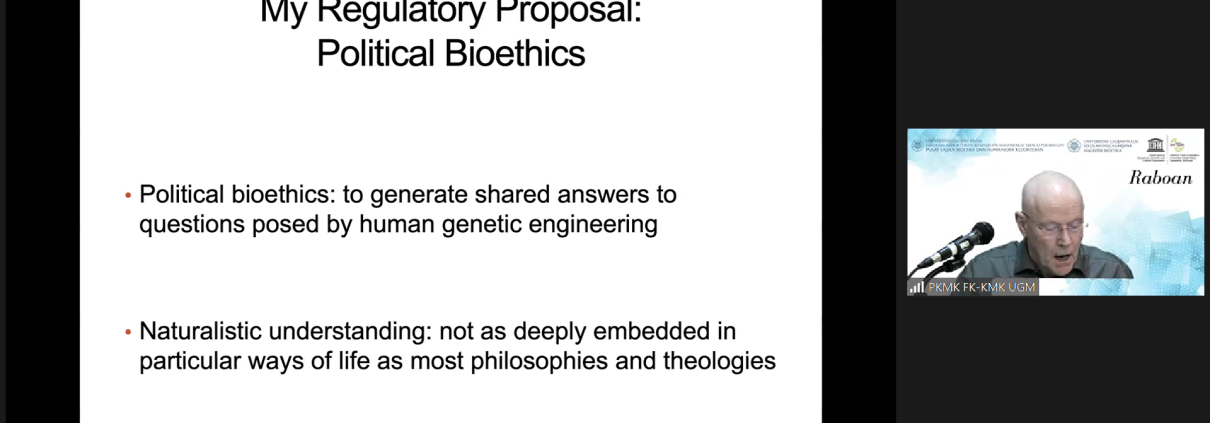Moral and Legal Guidelines for Genetic Editing [Raboan Discussion Forum]
On Wednesday (24/5), the Center for Medical Bioethics and Humanities held the Raboan Discussion Forum. The topic discussed was the Moral and Legal Guidelines for Genetic Editing. The speaker for this discussion was Prof Benjamin Gregg (expert in epigenetics) and it was moderated by dr Wika Hartanti, MIH .
Epigenetics is the study of how a person’s behaviour and environment can change the genes in their body. A genome is all of an organism’s genetic information. The germline consists of the cells that form the egg, sperm, and the fertilized egg. They pass on their genetic material to the offspring.
Prof. Gregg explained that genetic editing involves changing the genetic material of living organisms by inserting, replacing, or deleting DNA sequences. There are several problems in the application of genetic editing related to moral and legal guidelines.
Some frequently asked questions are:
- “Could genetic manipulation emancipate humanity from genetic diseases?”
- “Should parents have a right to determine the best genetic inheritance for their future children?”
- “Will people in the future have a right to be free from genetic alteration?”
General principles to guide the regulation:
- Standards for regulation guided by several questions such as
- Human capacity for critical self-reflection: an aspect of entwinement of human cognition and human made culture.
- Political bioethics does not view human nature as a static Essence with innate properties, rather political bioethics views Human Nature as a dynamic co-evolution of biology and culture.
- political bioethics stresses cultural adaptation over biological adaptation as a species that constructs itself mainly in culture humankind accomplishes most of its tasks in communal life through cultural learning.
Prof. Gregg said that genetic manipulation can be justified when considering what kind of genetic modification will serve the interests of future generations. The interests and well-being of individuals in the future also require an awareness of the responsibilities of the current generation toward the next generation.
Prof. Gregg argues that the embryo is not a person. If we define a person as something more than the potential to become someone biologically, it means culture as well. further an embryo doesn’t’ have ability to veto, of course it cannot veto the planned genetic manipulation from which the future person will develop. According to the Prof. Gregg’s argue that a future person’s overriding interest in avoiding an otherwise avoidable genetically based incapacity for decisional autonomy. The primary concern should be the future person’s interest in avoiding any genetically derived incapacity for decisional autonomy, which wouldn’t be preventable. because it preserves the future persons decisional autonomy.



